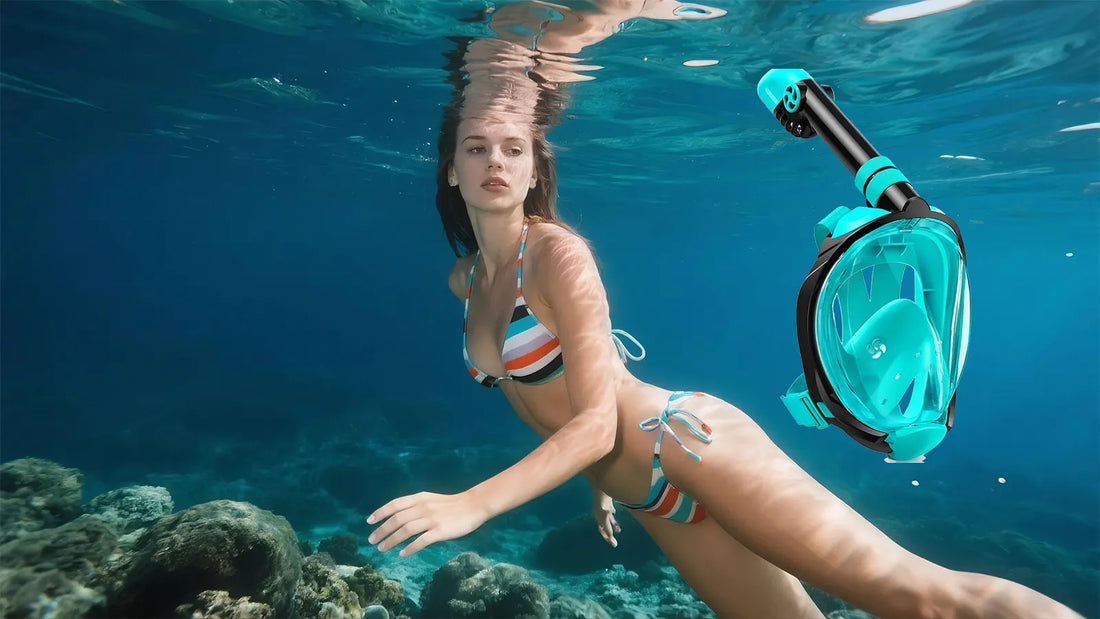Swimming is a fantastic way to stay fit, but having the right gear can make all the difference. When it comes to swimming goggles, finding the perfect pair can enhance your performance and make your time in the water more enjoyable. But with so many options available, how do you know which goggles are the best for swimming? This comprehensive guide will walk you through everything you need to know to make an informed decision.
Why Are Swimming Goggles Important?
Swimming goggles are more than just an accessory; they are an essential piece of equipment for anyone who spends time in the water. They protect your eyes from chlorine, salt, and other irritants, while also providing clear vision underwater. Whether you're a competitive swimmer or a casual enthusiast, the right goggles can improve your comfort and performance.
Key Features to Look for in Swimming Goggles
When choosing the best goggles for swimming, there are several key features to consider. These include fit, comfort, lens type, and durability. Let's take a closer look at each of these factors.
Fit and Comfort
One of the most important aspects of any pair of swimming goggles is the fit. Goggles that fit well will stay in place during your swim and won't cause discomfort. Look for goggles with adjustable straps and nose bridges to ensure a snug fit. Additionally, consider the shape of the goggle frame; some are designed to fit more closely to the face, while others offer a wider fit for added comfort.
Lens Type
The type of lens in your goggles can significantly impact your swimming experience. Clear lenses are ideal for indoor swimming or low-light conditions, while tinted lenses can reduce glare in outdoor settings. Mirrored lenses are another popular option for outdoor swimming, as they provide additional protection from bright sunlight. Some goggles also come with prescription lenses for those who need vision correction.
Durability
Durability is another crucial factor to consider when choosing swimming goggles. Look for goggles made from high-quality materials that can withstand regular use. Silicone gaskets are often more durable and comfortable than foam, and anti-fog coatings can help maintain clear vision over time. Additionally, consider the ease of replacing parts like straps or lenses to extend the life of your goggles.
How to Choose the Best Goggles for Your Needs
With so many options available, it can be challenging to determine which goggles are the best for your specific needs. Here are some tips to help you make the right choice.
Consider Your Swimming Environment
The environment in which you swim can influence the type of goggles you need. For indoor swimming, clear or lightly tinted lenses are usually sufficient. If you swim outdoors, consider goggles with darker or mirrored lenses to reduce glare. Additionally, if you swim in saltwater, look for goggles with a more secure fit to prevent leaks.
Think About Your Swimming Style
Your swimming style can also impact your choice of goggles. Competitive swimmers may prefer low-profile goggles that reduce drag, while recreational swimmers might prioritize comfort and a wider field of vision. If you enjoy open water swimming, look for goggles with a secure fit and anti-fog features to ensure clear vision in varying conditions.
Try Before You Buy
One of the best ways to ensure you're choosing the right goggles is to try them on before making a purchase. Many stores allow you to test goggles for fit and comfort, so take advantage of this opportunity. If you're shopping online, look for retailers with a good return policy in case the goggles don't meet your expectations.
Maintaining Your Swimming Goggles
Once you've found the perfect pair of goggles, it's essential to take care of them to ensure they last. Here are some tips for maintaining your swimming goggles.
Rinse After Use
After each swim, rinse your goggles with fresh water to remove chlorine, salt, and other residues. This will help prevent damage to the lenses and gaskets.
Store Properly
Store your goggles in a protective case to prevent scratches and damage. Avoid leaving them in direct sunlight or extreme temperatures, as this can degrade the materials over time.
Replace When Necessary
Even the best goggles will eventually wear out. If you notice signs of wear, such as cracks, leaks, or reduced clarity, it's time to replace them. Regularly inspect your goggles for any damage to ensure they continue to provide the best performance.
Finding the best goggles for swimming doesn't have to be a daunting task. By considering factors like fit, comfort, lens type, and durability, you can find a pair that meets your needs and enhances your swimming experience. Whether you're a competitive swimmer or just enjoy a leisurely dip, the right goggles can make all the difference. So dive in, explore your options, and find the perfect pair to take your swimming to the next level.

